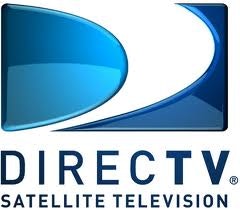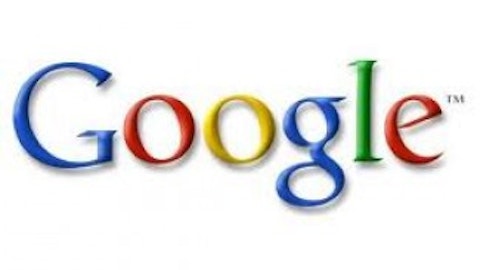Google Inc (NASDAQ:GOOG) recently held informal talks with NFL executives about buying the rights to the NFL Sunday Ticket, according to AllThingsD. Satellite TV provider DIRECTV (NASDAQ:DTV) currently holds the rights, but its contract with the NFL expires in 2014.
If Google Inc (NASDAQ:GOOG) makes the deal, it would be yet another sign of DIRECTV (NASDAQ:DTV)’s vulnerability to Internet-based alternatives.
NFL Sunday Ticket could change hands
As it stands today, the NFL Sunday Ticket allows DIRECTV (NASDAQ:DTV)’s subscribers to watch any NFL game. It’s expensive — it costs an extra $300 per year — but it’s popular among NFL junkies, those obsessed with fantasy football, and fans that happen to live in different cities than their favorite team.

The right to carry NFL Sunday Ticket does not come cheap. Right now, DIRECTV pays the NFL $1 billion per year for the priviledge — a figure that’s expected to increase once the current deal expires.
Google Inc (NASDAQ:GOOG), with about $50 billion in the bank, definitely has the resources to make the deal. At the same time, DIRECTV’s shareholders might not be sad to see it go — analysts at Citi believe that the deal costs DIRECTV (NASDAQ:DTV) some $300 million each year.
Google could make better use of Sunday Ticket
Like DIRECTV, Google Inc (NASDAQ:GOOG) could use the NFL Sunday Ticket as a loss-leader, offering it over YouTube as a way to push deeper into the TV realm. The company’s latest gadget, the Chromecast, has been somewhat of an overnight success, selling out nearly instantaneously.
The Chromecast, like its rival Apple TV, acts as a way to beam Internet content to a user’s TV set. By paring the Chromecast with the NFL, Google Inc (NASDAQ:GOOG) would bolster its TV efforts.
But more than that, it’s actually better positioned to offer NFL Sunday Ticket.
It wouldn’t be unreasonable to assume that there are NFL fans out there that would be interested in such a package, but can’t buy it because they aren’t DIRECTV (NASDAQ:DTV) subscribers. Perhaps they’ve signed a contract with their local cable company, or find that bundling the Internet with cable makes more sense than buying DIRECTV (NASDAQ:DTV).
By freeing NFL Sunday Ticket from a provider — and offering it up to anyone with an Internet connection — it should be able to attract more subscribers. Should that occur, it will be yet another example of content moving online.
The rise of Internet-based providers
PC chipmaker Intel Corporation (NASDAQ:INTC) plans to launch an Internet-based paid-TV service in select markets later this year. According to a report from The Wall Street Journal, Intel Corporation (NASDAQ:INTC) has built a server farm to store live TV and then serve it up (Netflix, Inc. (NASDAQ:NFLX)-style) to its subscribers over the Internet.
Without seeing the service in action, it’s difficult to predict that it will be a success. Yet, if it’s popular, Intel Corporation (NASDAQ:INTC) could stand to make a lot of money. For example, last quarter, DIRECTV brought in $7.7 billion in revenue, largely from its base of 20 million US subscribers. For comparison, Intel Corporation (NASDAQ:INTC) took in $12.8 billion in revenue last quarter.
Obviously, even if Intel Corporation (NASDAQ:INTC)’s service is fantastic, it isn’t going to get 20 million subscribers overnight. But longer-term, paid TV could become a meaningful contributor to Intel’s business.
DIRECTV as a value trap
This overarching trend — the move to bring content online — should frighten DIRECTV shareholders. On paper, the company is a tremendous value: It trades with a below-market multiple, generates cash, and buys back stock aggressively. It’s even one of Warren Buffett’s picks.
Yet, the potential long-term ramifications of paid-TV’s move to the Internet could be catastrophic. Unlike a rival such as Comcast or Time Warner Cable, DIRECTV’s Internet offerings are largely non-existent. Thus, it’s extremely susceptible to Internet-based competition.
Should a Comcast TV subscriber ditch his cable package for Intel’s offering, Comcast would still retain that subscriber’s business for Internet access. DIRECTV, on the other hand, lacks that luxury.
DIRECTV (NASDAQ:DTV)’s management understands the threat. It tried to buy Hulu last quarter, and on the company’s last earnings call, said it was disappointed that Hulu’s owners wouldn’t sell. DIRECTV might’ve made Hulu into its own Internet-based service, but without it, the company remains vulnerable.
Content goes online
Should Google Inc (NASDAQ:GOOG) acquire the rights to NFL Sunday Ticket, it would be yet another example of the Internet becoming the preferred distribution method for content. YouTube is already a dominant video portal, but by pairing it with the NFL, Google could position itself as a major player in the digital TV world.
At the same time, while the loss of the NFL might be seen as a net positive for DIRECTV, the overarching trend is decisively negative. As it has no Internet offerings, DIRECTV is extremely susceptible to online-based competition, like the service Intel Corporation (NASDAQ:INTC) is preparing to launch in the near future. Overall, this trend remains in its infancy, but it’s something DIRECTV shareholders need to keep an eye on.
The article Another Sign the Internet Is Going to Kill DIRECTV originally appeared on Fool.com and is written by Sam Mattera.
Sam Mattera has no position in any stocks mentioned. The Motley Fool recommends DIRECTV, Google, and Intel. The Motley Fool owns shares of Google and Intel.
Copyright © 1995 – 2013 The Motley Fool, LLC. All rights reserved. The Motley Fool has a disclosure policy.





